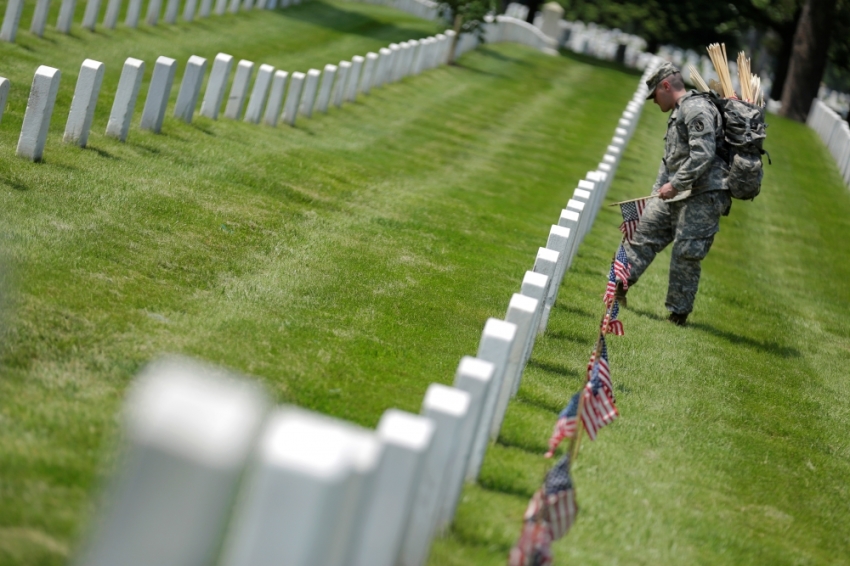Memorial Day: What the Bible and Jesus Teach Christians About War

Russell Moore, the president of the Southern Baptist Convention's Ethics & Religious Liberty Commission, says there has been some debate among Christians as to whether Memorial Day should be honored, given that Jesus Christ taught peace.
"For some Christians, Memorial Day is a complicated experience. These Christians would argue that it is inconsistent at best for believers in the Gospel to celebrate anything won by war. They think, 'Didn't Jesus settle this on the Sermon on the Mount? What's hard to interpret about 'turn the other cheek' and 'love your enemies?'" Moore wrote in a blog post on Memorial Day.
He suggested that Christians with such pacifist views can find biblical warrant, and pointed to several passages in the New Testament in which Jesus and His Apostles forbid seeking vengeance, such as in Matthew 5:38-44 and Romans 12:18-21.
On the other hand, Moore also shared Romans 13:1-5, in which Paul talks about the Roman state "bearing the sword" against "evildoers" by God's own authority.
Moore wrote: "Paul's admonition is consistent with the rest of the Bible. The Old Testament is, among other things, the story of a warrior people triumphing over their enemies and finding rest in the land of promise."
He added: "Moreover, Jesus never commanded those in the military — even though these soldiers were serving a pagan Roman Empire — to walk away from such service, though he was quite willing to command prostitutes to abandon their employments. This is the biblical foundation for the belief in 'just war' that was articulated by Augustine and has been shared by most of the church since."
The theologian said that while pacifism is problematic "because it is utopian," the Bible affirms "the way of peace," even though the day when all of Christ's enemies are subdued has not arrived yet.
He said that both viewpoints have credibility, and at the same time have faults, noting that while pacifists are right to warn that "war is always tragic," passivity in the face of genocide, such as Adolf Hitler's atrocities in Europe during World War II, is not peace, but "horror."
Moore argued, however, that militarism cannot always be the proper response to world conflicts.
"A Christian whose first response to news of unrest or persecution overseas is, 'Just nuke them' is also speaking outside the way of Christ. Yes, military action is sometimes necessary. But Christians have always seen war of any kind as a tragedy — even when it is the least bad of the alternatives before us," Moore wrote.
"Christians also recognize that a concept of 'perpetual war for perpetual peace' is an illusion. Jesus rebuked Peter for believing the answer to Jesus' arrest was the declaration of a violent counter-action (Matthew 26:52). Sure, there will be a 'war to end all wars,' but it will be fought at Armageddon — and it won't be planned by the Pentagon."
Memorial Day continues to be one of the most widely observed public holidays in the U.S. and American military cemeteries worldwide, with various efforts undertaken to remind the public that the day is more than just another three-day weekend. As The Christian Post reported on Saturday, the newly-released documentary film "The Unknowns" sought to stir public consciousness in that regard.
"Memorial Day comes around every year, and unless you know someone who was killed fighting for our country it becomes just a nice day off," producer Ethan Morse told CP. "We wanted to show the general public the behind-the-scenes of the Tomb of the Unknown Soldier so they could get a better appreciation of why they even have the day off."



























